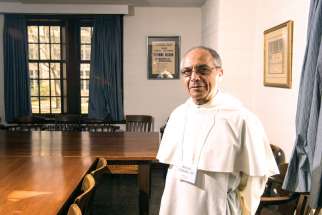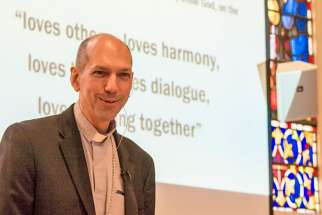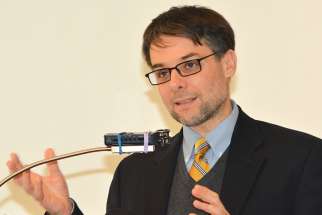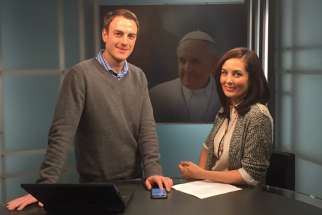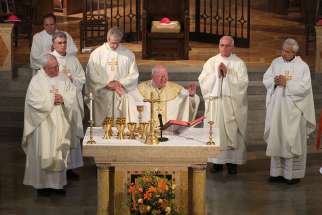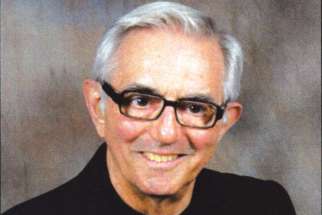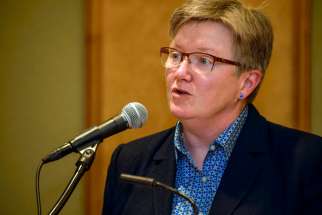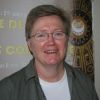Dominicans open up the conversation
TORONTO - The biggest theological conference in Toronto since 1967 brought more than 200 scholars to the University of St. Michael’s College to look at the same subject theologians were wondering about then — the Second Vatican Council.
Dialogue is a Church reality
TORONTO - When Pope Francis talks about dialogue he’s not advancing an agenda or solving the political problems of the Church, Saskatoon’s Bishop Don Bolen told audiences in Waterloo, Ont., and Toronto at a pair of lectures on ecumenical and interfaith dialogue.
Pope’s ‘popular mandate’ making enemies
EDMONTON - Pope Francis is a radical reformer who is facing enemies inside and outside the Church opposed to at least some parts of his agenda, says a prominent Church historian.
Evangelizing Pope Francis style
TORONTO - Pope Francis’ “profound sense of authenticity” is what attracts young people to the pontiff, says Catholic media personality Cheridan Sanders.
INDIANAPOLIS - The Second Vatican Council brought about renewal to many aspects of the life of the church.
But for many Catholics, the most noticeable developments appeared 50 years ago. On Nov. 29, 1964, parts of the Mass began for the first time to be prayed in English, priests started facing the congregation, and the approach to liturgical music sounded a different note.
Time to take commitment to ecumenism seriously
TORONTO - When Saskatoon’s Bishop Don Bolen worked for Cardinal Walter Kasper in the Vatican, the boss would tell him that all those documents produced at the Second Vatican Council weren’t supposed to sit on shelves gathering dust.
Shepherds’ Trust gives freedom and dignity
Msgr. Sam Bianco — born as the Great Depression ended and his father went off to war, raised in the postwar boom, ordained in that first decade after the Second Vatican Council — had a 45-year career in ministry.
Ecumenism needs to get more pastoral
TORONTO - Fifty years on, it’s time for the ecumenical movement to take on a more pastoral mission and worry less about trying to untie the knots of history and theology, Saint Paul University theology professor Catherine Clifford told a small gathering of bishops, clergy and lay people in Toronto commemorating the 50th anniversary of the Second Vatican Council’s Decree on Ecumenism.
OTTAWA - An Ottawa conference Sept. 27-29 marking the 50th anniversary of the Second Vatican Council will examine how to “hand on the
Gospel today” in light of Vatican II’s teachings, said Saint Paul University theology professor Catherine Clifford.
“One of goals is to promote the pastoral renewal of the Church,” said Clifford, an organizer of the Vatican II: For the Next Generation Conference. Co-sponsored by Saint Paul’s Vatican II and 21st Century Catholicism Research Centre and Novalis, the conference will begin a week before bishops from around the world gather in Rome for the Synod on the New Evangelization.
“The world we live in today is very different from the world 50 years ago,” Clifford said. “Many of the questions are not the same questions the bishops were reflecting on in 1962-65 in the Council.”
When Vatican II opened 50 years ago, it took place against the backdrop of the Cold War, less than 20 years after the end of the Second World War, said Clifford. Since then there has been a marked shift to the global integration of societies and culture, she said.
“It’s an era of an unprecedented migration of peoples,” she said. “The population of the world has more than doubled; the population of the Catholic Church has more than doubled.
“The majority of Catholics live not in Europe and North America but in the Southern hemisphere. We are a very different Church than we were 50 years ago.”
Though poverty and social injustice remain challenges, “in some ways those issues are far more complex than they were 50 years ago,” she said.
Another sign is the growing recognition of the dignity of the human person that is probably even stronger than it was 50 years ago, when the civil rights movement in the United States was gaining momentum, she said.
The conference will feature a keynote address by Cardinal Peter Turkson, president of the Pontifical Council for Justice and Peace and one of the names that frequently appears in speculation about future popes. The cardinal will speak on “Vatican II: A Council of Justice and Peace.” He will also receive an honorary doctorate at a special convocation in the university chapel on Sept. 28.
Other conference attendees include dogmatic theology professor Christoph Theobold, S.J., from the Centre Sèvres in Paris, France, and Boston College systematic theology professor Richard Gaillardetz. The conference will feature a panel of bishops and advisors who participated in the Council, including Bishop Remi De Roo and Bishop Gerard J. Deschamps, and advisors Gregory Baum and Leo Laberge, omi.
See www.ustpaul.ca or e-mail vaticancentre@ustpaul.ca.


